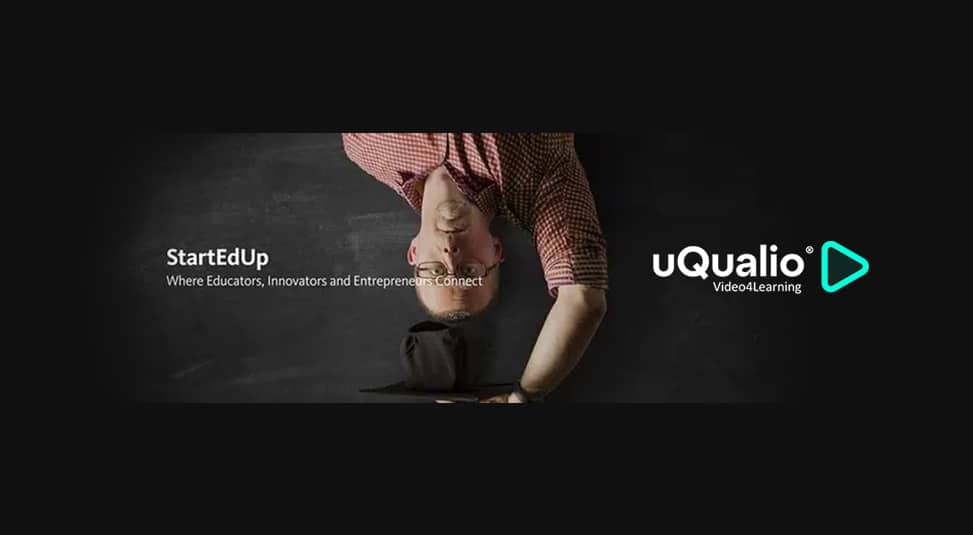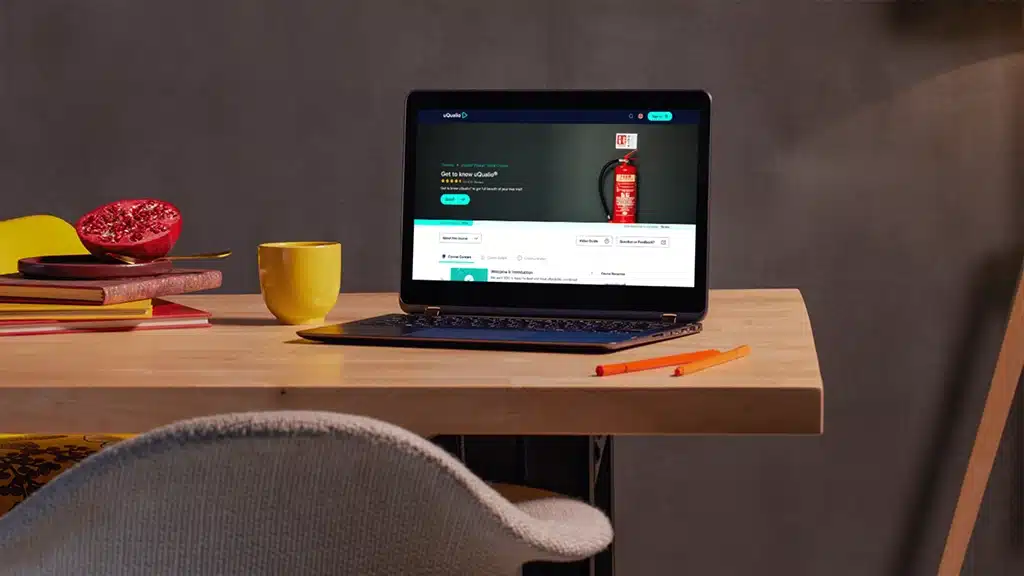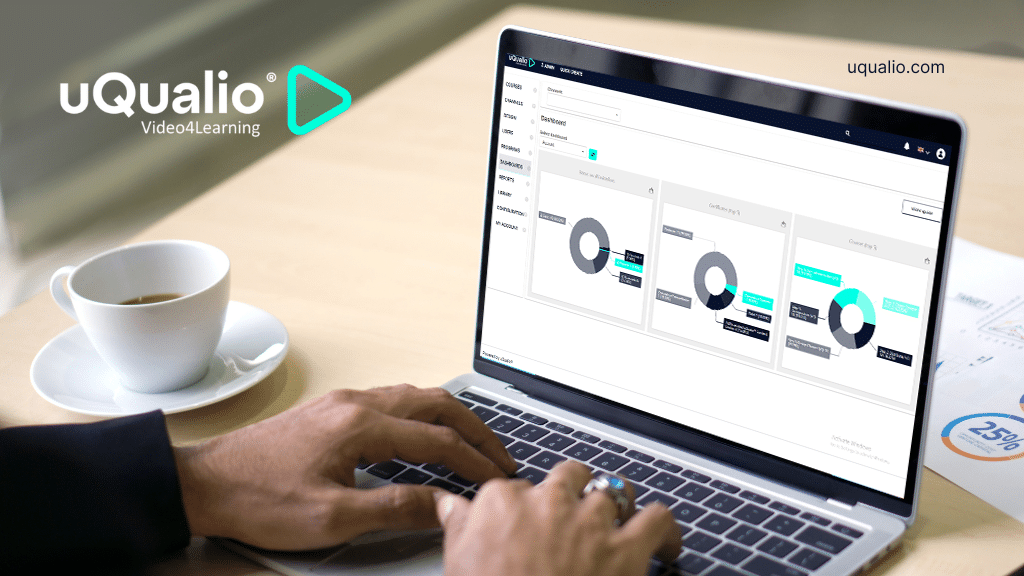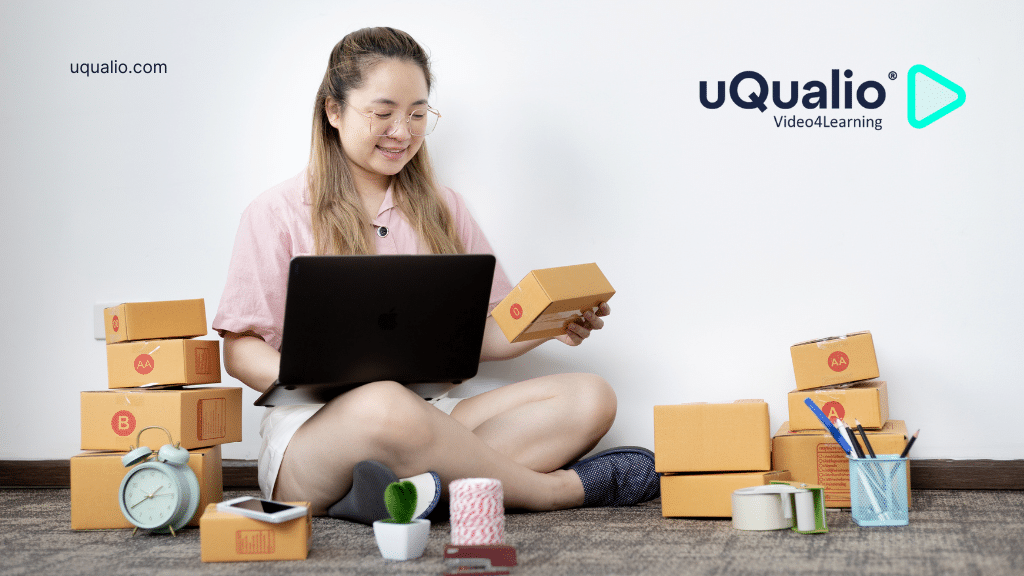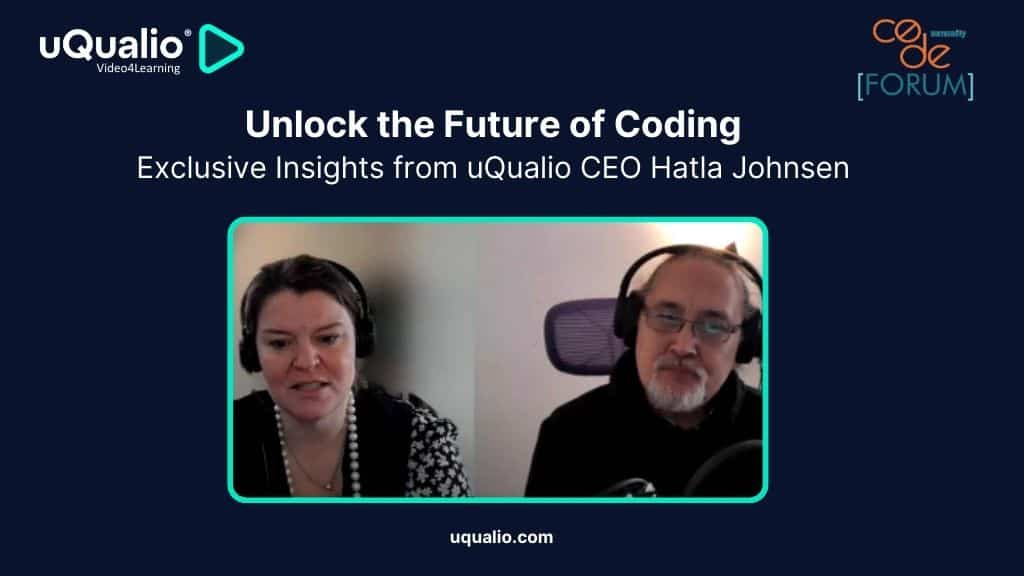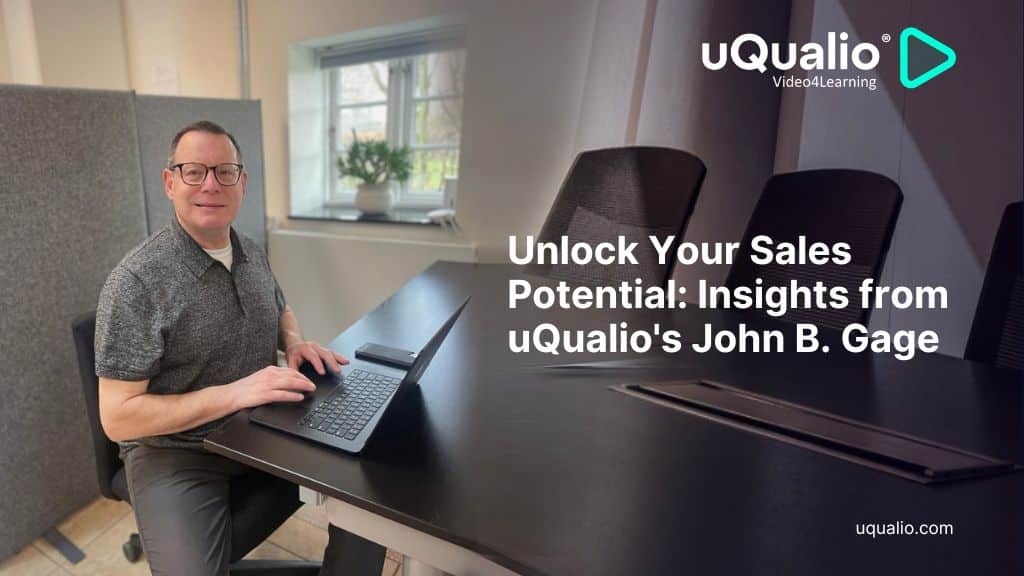uQualio the video eLearning authoring & creation LMS software platform has interviewed the founder of The STARTedUP Foundation, Don Wettrick.
We all envision a world where education impacts life in the most positive and meaningful ways possible. Today, uQualio®, the makers of the internet’s favorite eLearning software, had the opportunity to sit down and chat with Don Wettrick about his experience growing the nonprofit The STARTedUP Foundation, an enterprise, focused on bridging the worlds of education and entrepreneurship. Let’s jump into the interview below.
Complacency, by embracing personal responsibility, service, creativity,
First of all, education did a wonderful job of preparing our students for jobs for several years. Then the jobs changed, but our schools didn’t. It’s that simple. The culture of an innovative workforce demands that employees can collaborate to find new opportunities and solve problems QUICKLY. It requires a great deal of honest, frank discussions that revolve around making fast, informed decisions. Do our classrooms look like this? Are students asked to solve new problems that don’t yet have a solution? Or, do they memorize facts from the past? That isn’t to say that “all facts and lessons from the past are irrelevant.” A baseline of knowledge is always needed. But what I want is to create a time and space in our school day to have “open source” learning- a time where our students can solve REAL and RELEVANT problems that face our world.
What role does the internet, and in particular online learning, play in STARTedUP’ s approach to teaching?
In a day where we can literally meet and learn from anyone, at any time- why wouldn’t we want to open-source our learning? Students right now are learning on YouTube, LinkedIn, and literally hundreds of online courses that are focused on defined skills. I believe that schools should empower our learners to find not only these lessons but seek out mentors and teachers to help them in skill acquisition, and potential mentorship.
You take a very well-rounded approach to educating the students within the program. Not only do you have startup accelerators where your students get their hands dirty by actually completing real-world assignments, but you also do things like take field trips to visit other successful companies. For example, you recently brought the students to visit the offices of Google and Scribe. It seems like you’re really bent on providing the best educational experience possible. However, you don’t just teach in the “real world”. You also have a podcast where you bring your message to people who might not otherwise be able to connect with you. How do personally integrate immersive learning experiences in your more digital forms of education (like in your podcast for example)?
This is something we are currently working on. Right now we have a course, “Future ReadyU ,” in which our students get the basics of innovation, problem-solving, personal branding, and self-awareness. However, we have been so single-focused on the foundation, we’ve not really promoted the course. In fact, because growing STARTedUP Foundation has been such a high priority, we’ve had several business developers offer to help out with the course. In all transparency, it’s been a sore spot with my team. In 2020 we will be updating, enhancing, and promoting it for sure – but I really feel the call to hit all my goals for the nonprofit first.
That being said, we also feel as though the course is an excellent way for students to “get the experience” if they don’t have a STARTedUP location near them right now.
On a similar note, how can educators who are teaching online (through podcasts, videos, e-courses , etc.) adopt your principles of passion-based, open-source learning to improve their student’s education? What are some of the roadblocks in the online environment and how can online educators overcome them?
I would encourage any teacher with content online to have a call to action (CTA) at the end of a lesson. If you are teaching a skill, how might you use that skill now? The most effective way for any student to WANT to practice a new skill is to focus it on something he/she is passionate about and wants to put it into practice.
For that matter, parents and teachers need to ask themselves this all of the time: What is my student(s) learning and what can they “do” with it? What is the call to action?
Over eight years ago, I watched Daniel Pink’s TED talk on what motivates people. After watching it, and having my class watch it, I evolved a “20% Time” into its own class: Innovation and Open Source Learning.” My book, Pure Genius was a guidebook on how we started this class, the skills and tools needed, and how to keep the students accountable.
The “holding students accountable” has always been (and always will be) the hardest part. Heck, most adults struggle with setting goals – then sticking to them. It’s FUN to say what you’re about to do! Especially during the New Year’s Resolution time.
- “I’m going to read a book a month.”
- “I’m going to lose 20 pounds.”
- “I’m going to build an app.”
The not-so-fun part: doing it. Therefore, we have to be patient with the students that “get hyped” over the possibilities, then allow them the guidance to see it through. I found two tools that really helped my students stay on track.
First: Make a proposal on what project you want to work on. I have to approve the project, and the first “test” is to see if you hit our “Rule of Thirds.” The three rules for me to approve your project were:
- Are you passionate about the topic/plan?
- What skills are you going to develop?
- Who does it benefit other than you?
These three questions force the student to not only think twice about a project but also allow them to not just choose something out of fleeting emotion. By thinking about “skills acquisition” they are also deliberate about knowing how this project will help them become more well-rounded, but also more valued in the marketplace. Lastly, I also want them to realize that a great project helps serve the needs of the many- and not just your ego.
Second: Public Reflections. The other way to hold the students accountable is to encourage public reflection of the projects. I encouraged my students to either blog, podcast, or video journal so that people could look in, provide feedback, and even encourage them if they fall behind. However, many of my students wanted to keep these reflections between me (the teacher), and their team, I HIGHLY encouraged them to use this project and class as an opportunity to find mentors and “fans’ of their work.
I’m sure our audience (many of whom have e-courses) are interested in knowing they can bring some of these strategies into the virtual world. for example, how can teachers incorporate space for innovation and experimentation? For all of the freedom the internet has given us in terms of access to education, many forms of online education simply adopt old ways of thinking about course structuring and student progress. How can online course creators not fall prey to the same mistakes that many offline educators have fallen prey to?
Again, have a call to action for your new skills. If the point of the class is to “learn” something- how can it be used… now. Go and do. If the class is to simply learn and nod their head, that’s not really putting the knowledge to use.
Your goal is to help create the next generation of free thinkers who can create new concepts and products that can change the way we live. what are some interesting projects/ideas that your students have come up with recently where you’ve just been taken aback by the creativity of the students within your program?
I hate to play favorites, but I’ll give three examples. One was a student that wanted to design a basic game and he wanted to see if he could get it on the Apple store. He went through the design process, which included research into what makes games addictive and good design elements, and eventually released a good version. It took him a while to get it approved, but he indeed got it on the store and was able to tell friends that he was indeed a game developer. Did it get millions of downloads? No. But it was an amazing experience.
Another was a student that designed a children’s toy that centered around language development. The idea literally came out of a brainstorming session in class, and the team got to work with some top-notch designers. They were later awarded a design patent! She then took that project and got to work on it with a professor at her university.
Lastly, I had two students that met a teacher (Kobe) from Ghana from a mutual friend that had worked there the summer before. They started to collaborate with Kobe and eventually held a fundraiser for a new three-room school in rural Ghana. Not only did they raise enough money to start it, one of the students traveled to Ghana to see it get off the ground!
Amazing stories! As you mention on your site, social media is a double-edged sword. You’ve mentioned that it’s the source of huge amounts of student anxiety. However, you also mention its power as a teaching tool. This is a two-part question. First, what can we, as learners, do to help reduce the negative impact of social media in our lives?
Set limits and have discussions. I think staying up to date on what current trends and fads are online is important. For example, I downloaded TicTok and was mortified by what I saw. As a parent, I was bothered by the videos and objectifying of young girls. While I didn’t register for an account, I spent some time to see trends and then had a discussion with my daughters. At first, they thought it was hilarious their 47-year-old dad scrolled through TikTok videos.
Then I asked several questions and they opened up about what they saw. They too were a little bothered by some of the videos, and in the discussion, they made some conclusions that I’m not 100% sure they would have thought about had it not been for the talk. I think both parents and teachers should have these discussions, and encourage dialogue on what is just “funny,” and what is actually causing harm.
Next, what can we do as learners to increase the positive educational impact that social media has on our lives?
As mentioned earlier, I’m a proponent of students reflecting on their journey. Whether that be a blog, podcast, or YouTube video, publishing content of you learning, growing, and helping others is HUGE. People are usually impressed by youth taking action. Social media, therefore, is the tool to amplify or get more people to your blog. This is why I like LinkedIn so much more than Instagram, Twitter, and Facebook. LinkedIn users are usually more receptive to content that is reflecting learning and growing… and not just showing off your political affiliation and/or rock-hard abs!
Well said! Thanks for joining us today Don. We truly appreciate you taking the time to chat with our eLearning blog readers about your experience running STARTedUP.
To our blog readers, if you’d like to learn more about Don’s work you can head over to STARTedUP’s website.
Achieve Effective & Affordable Video Training
– uQualio is an award-winning, easy-to-use, all-in-one NextGen LMS software for any types of online video training.

